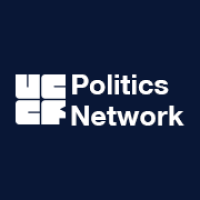Book Overview:
In this provocative book, Schaeffer calls on Christians to recognise the impact differing worldviews have on society. Distinguishing between a ‘Christian worldview’ and a ‘humanist worldview’, he argues one brings freedom and the other slavery. With this in mind, he then discusses the role of civil disobedience in the Christian faith before leaving us with some reflections on its place in contemporary life.
Discussion:
- What danger does Schaeffer argue Christians have typically fallen into? (p.17)
- What does he argue has happened and is happening? What are the inevitable consequences of this? (pp.17-30)
- Why does Schaeffer distinguish between humanitarianism, humanities, and humanism? What is he getting at here? (p.23)
- What does Schaeffer mean by the form/freedom balance? What place does this have in his argument? (pp.25-30)
- He quotes William Penn who argues “If we are not governed by God, then we will be ruled by tyrants” (p.34). What is he arguing here?
- What does he mean by a humanistic culture? What are its effects? (pp.41-62)
- What link does Schaeffer make between revival and social action? (pp.63-71)
- He contends that “as Christians we must stand absolutely and totally opposed to the whole humanist system, whether it is controlled by conservative or liberal elements” (pp.77-78). Why? How does this challenge us in our current conservative vs progressive, left vs right, culture-war context?
- What is the place of government biblically speaking? (pp.89-102)
- What does Schaeffer mean by the term the “bottom line” (p.93)
- Drawing upon the history of Christian thinkers and practice, where do we see this bottom line in practice. What is Schaeffer’s argument here? (pp.95-108)
- Do you agree? For those who think this is dangerous what is perhaps helpful/good about Schaeffer’s argument? For those that think this is good/helpful what is perhaps dangerous about Schaeffer’s argument?
- What does Francis Schaeffer mean when he speaks of civil disobedience? Consider his focus on the following points in Rutherford’s work (p.103) … What does each mean? In what context are they appropriate?
- Resist
- Flee
- Force
- “If there is no final place for civil disobedience, then the government has been made autonomous, and as such, it has been put in the place of the Living God” (p.130). What does Schaeffer mean?
- He argues that Christians shouldn’t be squeamish about using political and legal means to stand against humanism whilst also showing the Christian alternatives (pp.133-134). What does this mean? Why is it important that Christians do both and not divorce these from one another?

